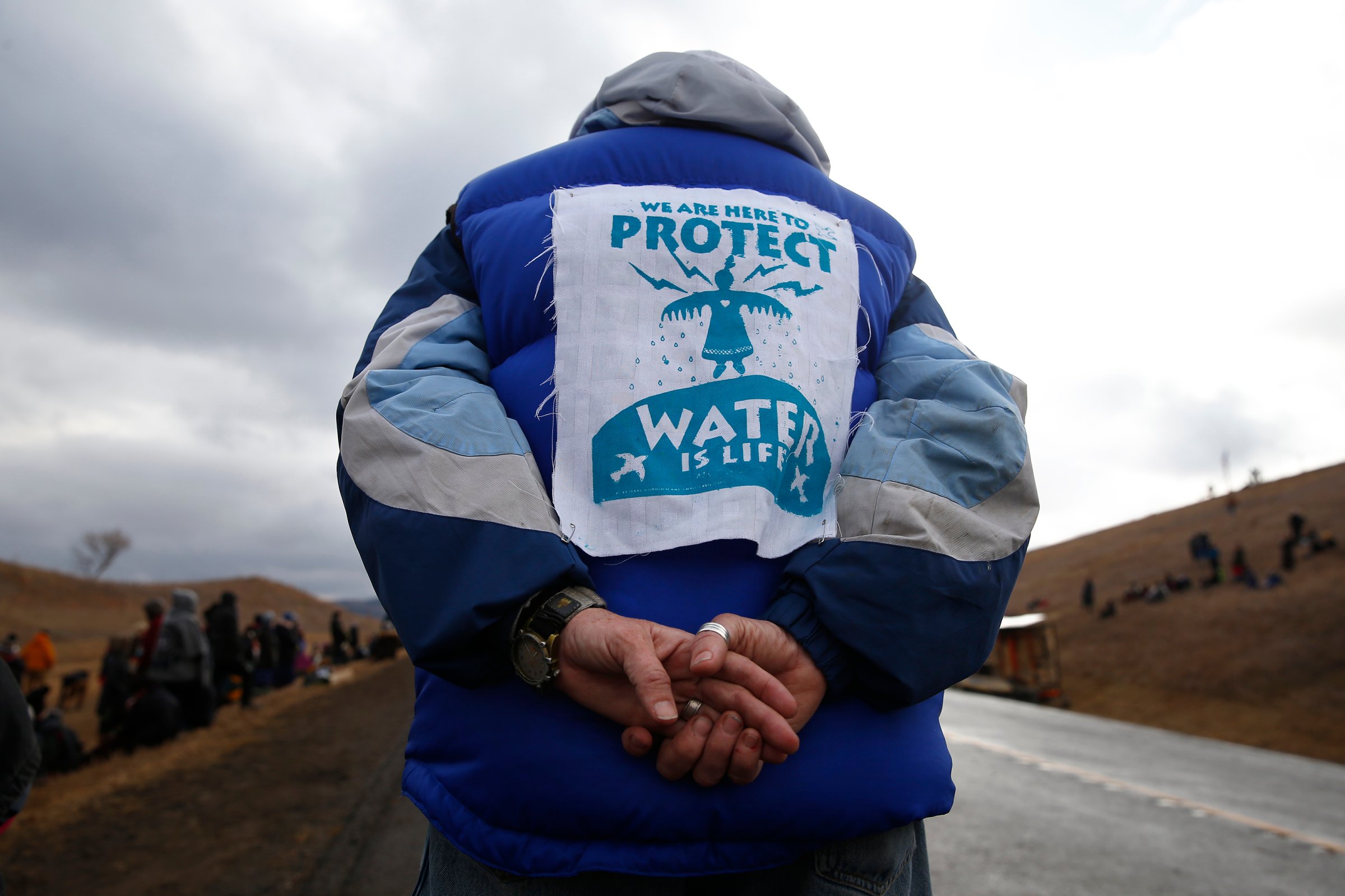
The movement to stop the Dakota Access Pipeline continues to draw growing support from across the country even as the chances of its success dwindle day by day. But no matter what happens in North Dakota, activist leaders say they plan to channel the energy generated in Standing Rock to oppose a wide range of fossil fuel projects in development across the country.
“This has been a really powerful moment of the coming together of indigenous people and their allies,” says Tara Houska, a leader at the Native-led NGO Honor the Earth on the ground in North Dakota. “Like Hydra, you cut off one head and another one appears.”
Exactly which fight will come next is hard to know. Activists say they will look to target projects where they can build large coalitions like the one on the ground in North Dakota with organizers devoted to addressing climate change, indigenous rights and environmental justice all working together.
The attention surrounding Standing Rock comes at a time of when activists will be facing new challenges, most importantly at the federal level when President-elect Donald Trump takes office on Jan. 20. Trump has promised to undo oil and gas regulations and will almost certainly take a more antagonistic attitude toward the environmental community than President Obama. He even owns stock in Energy Transfer Partners, the company behind the Dakota Access pipeline.
Some activists say they remain optimistic that Trump will tread carefully on the Dakota Access project precisely because of his own financial stake in the pipeline. Interfering in the pipeline would look bad, even for a politician who has shown little concern with mixing his private interests with official business, and Trump should expect a backlash if he pushes fossil fuel development too hard from the outset of his presidency, activists say. “These last two pipes are symbols for a growing movement around the country,” says Sierra Club Executive Director Michael Brune, referring to the Dakota Access and Keystone XL pipelines. “We’re expecting that the opposition to these pipelines will grow under a less friendly administration in the White House.”
Read More: What to Know About the Dakota Access Pipeline Protests
But despite the optimism, leaders are not naive about their chances of swaying Trump’s opinion. But even if the Dakota Access Pipeline is completed, leaders say the opposition will have had a positive impact. Several federal agencies acknowledged that they need to do a better job consulting with tribes before approving such projects in the future. And the fact that the government would even consider complaints against a project already 90% completed sets a new precedent, activists say. “Pipelines and infrastructure projects historically have been rubber stamped across the board,” says Sara Shor, Keep it in the Ground Campaign Manager at 350.org. “Having those delays this late in the process is really historic.
Instead, they say they will calibrate their efforts to succeed despite an opposing administration. Attention will likely turn to stopping state permits rather than federal ones. Even in conservative states a coalition of indigenous people, environmental activists and landowners can pack a potent punch, activists say. Pipeline fights rooted in property rights in particular has already delivered some victories for pipeline opponents like in South Carolina where the legislature passed a law that effectively halted construction on the Palmetto Pipeline in that state earlier this year. Even with Keystone XL, a group of landowners in Nebraska had sued to stop the pipeline in their backyard before Obama rejected the project.
Read More: Donald Trump’s Victory Could Mean Disaster for the Planet
Support from Native American communities will also play a key role in determining which pipelines to target next. More than 300 tribes are represented at the Dakota Access Pipeline protest all in support of the Standing Rock Sioux tribe. The Pinon Pipeline in New Mexico and “the Line 3 Replacement Program” connecting Canada with Wisconsin could both have similar draws. Local tribes in both places say the projects threaten their wellbeing and contribute to man-made climate change to an unhealthy degree.
Before the next Dakota Access Pipeline pops up activists may need to gear up to revisit the old battle over the Keystone XL. President Obama rejected the pipeline last year, but Trump says approving it will be a priority on his agenda for his first 100 days in office. Activists promise not to stand idle if and when he tries to follow through on the campaign commitment. “I have a pair of handcuffs that are sitting on my bookshelf,” says Brune. “They may beed to be used again.”
More Must-Reads from TIME
- Donald Trump Is TIME's 2024 Person of the Year
- Why We Chose Trump as Person of the Year
- Is Intermittent Fasting Good or Bad for You?
- The 100 Must-Read Books of 2024
- The 20 Best Christmas TV Episodes
- Column: If Optimism Feels Ridiculous Now, Try Hope
- The Future of Climate Action Is Trade Policy
- Merle Bombardieri Is Helping People Make the Baby Decision
Write to Justin Worland at justin.worland@time.com